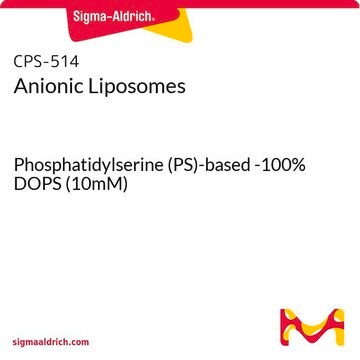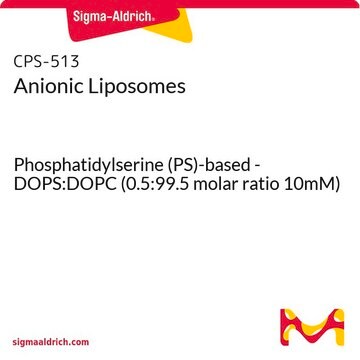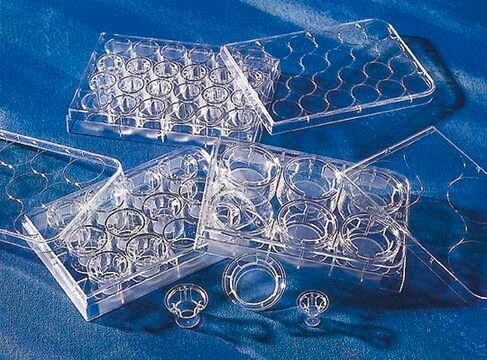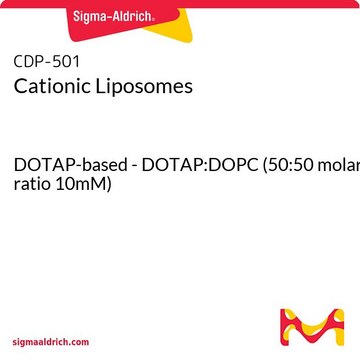推薦產品
一般說明
Liposomes are extensively used to study the interaction of proteins, peptides and other molecules with the surface of a lipid membrane. One of the parameters that affects this interaction is the charge of the liposomal membrane. Phosphatidylserine (PS) is a negatviely charged molecule. The amount of the negative zeta potential in the liposomes depends on the molar percentage of the phosphatidyleserine (PS) in the formulation. The anionic-phosphatidylserine (PS) liposome catalog contains products made from 0.5 up to 100 percent DOPS with various amount of negative zeta potentials. The matrix lipid DOPC used in the formulation does not significantly contribute to the charge of the liposomes.
應用
Drug delivery
Lipid-protein interactions
Lipid-protein interactions
儲存和穩定性
Liposomes should never be frozen. Liposomes should be stored in the dark at 4°C, except when brought to room temperature for brief periods prior to use.
Liposomes are made under sterile conditions. If you need to take multiple aliquots out of the vial, it is advised to take extreme care in not contaminating the vial. It is recommended to handle the vial under a sterile hood to maintain the sterility of the product. Liposomes should never be frozen. Ice crystals that form during freezing will rupture the lipid membrane of the liposomes and change the size of liposomes particles.
Liposomes are made under sterile conditions. If you need to take multiple aliquots out of the vial, it is advised to take extreme care in not contaminating the vial. It is recommended to handle the vial under a sterile hood to maintain the sterility of the product. Liposomes should never be frozen. Ice crystals that form during freezing will rupture the lipid membrane of the liposomes and change the size of liposomes particles.
法律資訊
Cellsome is a trademark of Encapsula NanoSciences
Product of Encapsula Nanosciences
免責聲明
For research use only
儲存類別代碼
12 - Non Combustible Liquids
水污染物質分類(WGK)
WGK 2
閃點(°F)
Not applicable
閃點(°C)
Not applicable
我們的科學家團隊在所有研究領域都有豐富的經驗,包括生命科學、材料科學、化學合成、色譜、分析等.
聯絡技術服務








